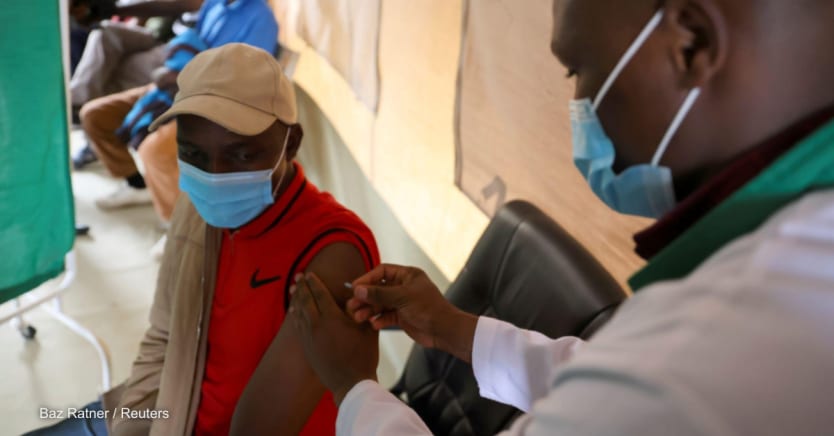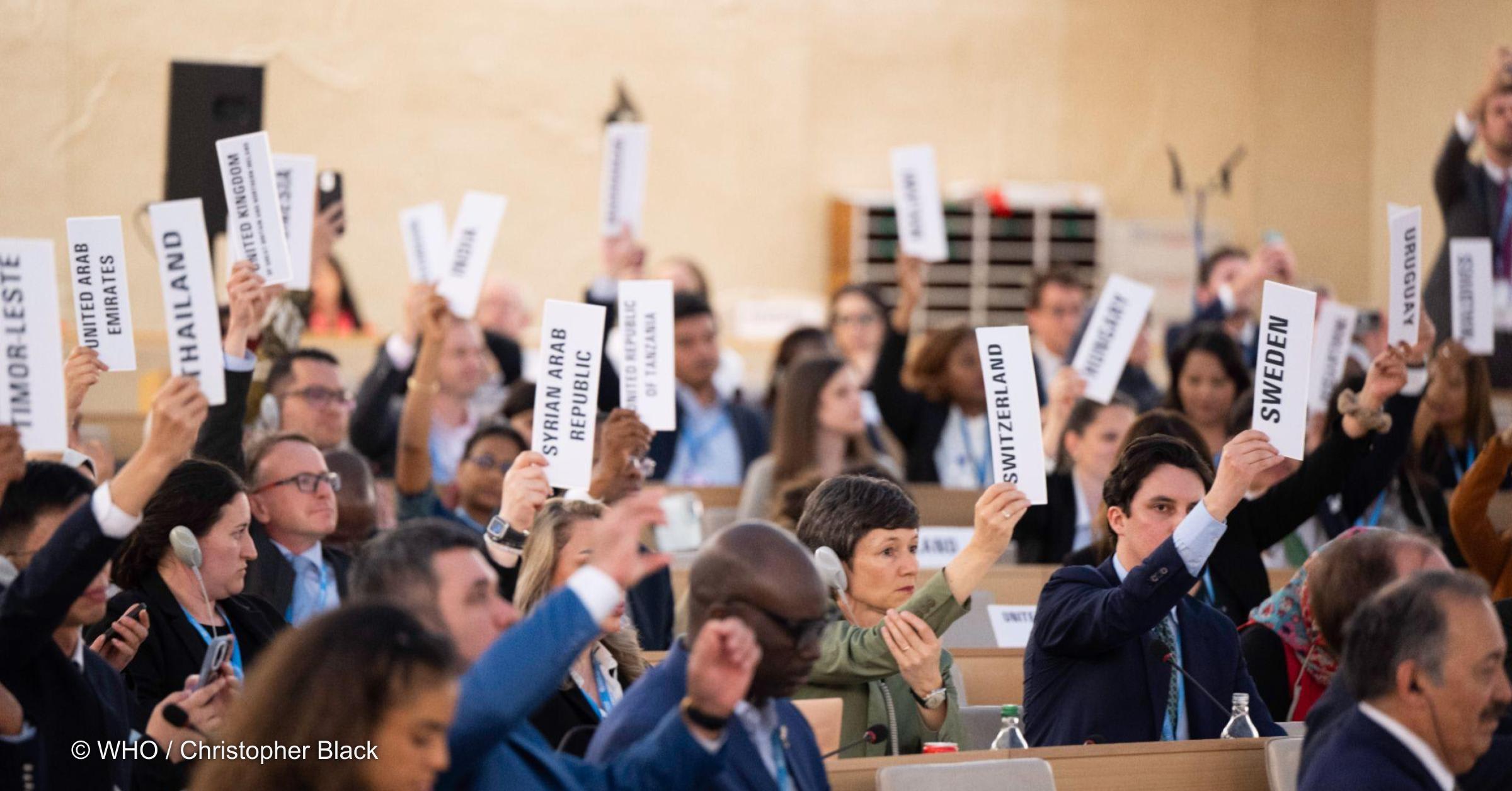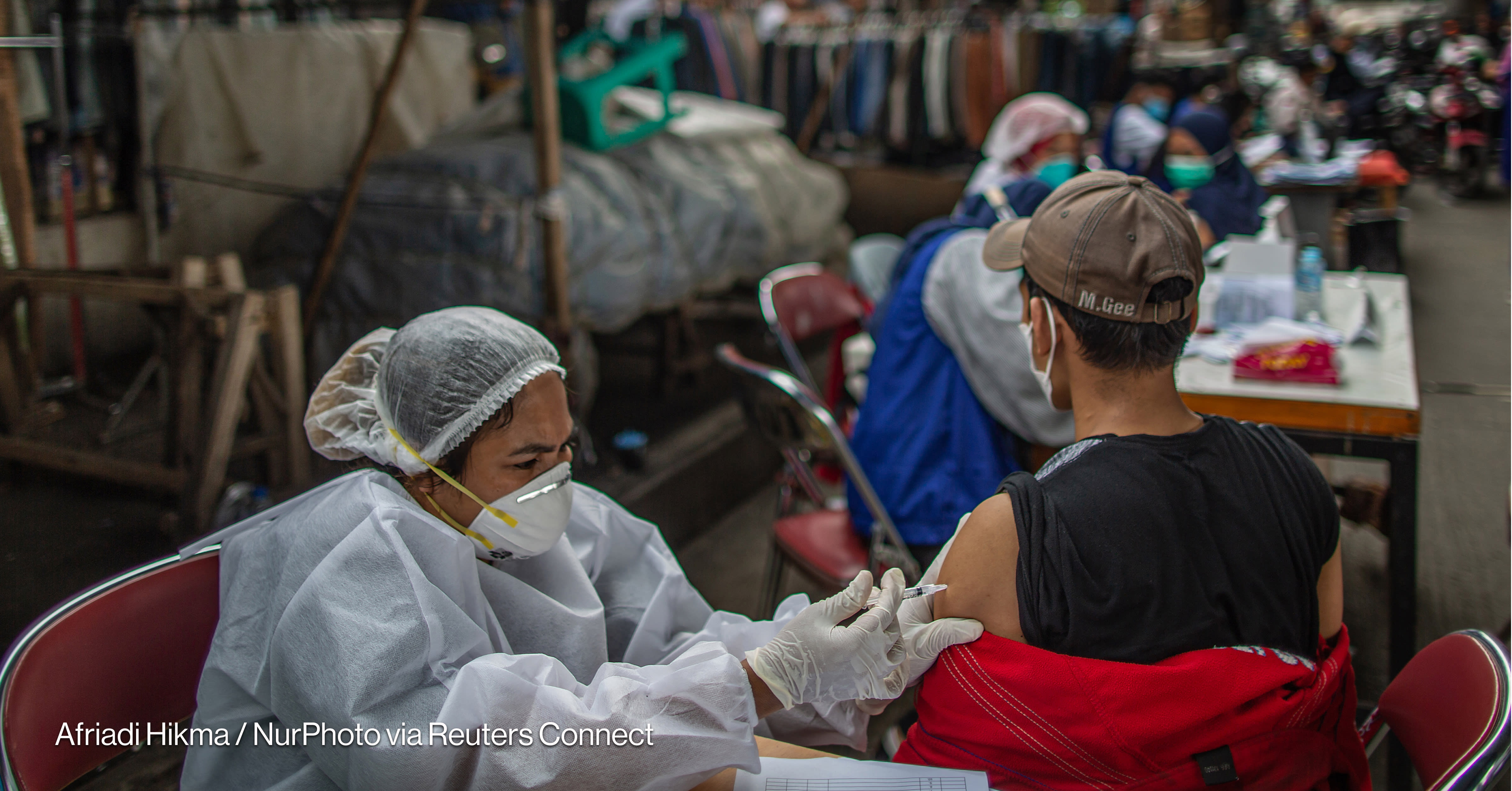
There is an African proverb that goes: “One who causes others misfortune also teaches them wisdom.” And if there is anything we have learned from Africa’s COVID-19 experience, it is that for as long as the balance of power is tilted in favor of the wealthier global north, then inequalities in health will continue to persist — and lives will be lost.
The global health system is broken. It is no longer fit for purpose, at least not for the African continent. Nearly two years into the pandemic and just one year shy of the anniversary of the administration of the first COVID-19 vaccines, African countries are still at the back of the queue, waiting for high-income countries to have their fill of vaccines and hoping that enough will be left for us once those with the financial might to procure more vaccines than they need are satisfied.
The Pro read:
Innovative financing to boost COVID-19 vaccine access
Increasing access to COVID-19 vaccines requires the creative use of financial tools, according to experts speaking at a Devex event on the future of development finance.
We have gone from pleading for assistance to demanding accountability from a system that was built to protect the interests of the wealthy, not the vulnerable. Unfortunately, not much has been done to upset the status quo: How else can we explain why, despite making up 17% of the global population, Africa only accounts for 2.8% of the world’s vaccinated people? This is happening as higher-income nations stockpile critical vaccine doses and administer booster shots to already vaccinated citizens.
The low vaccination rates in Africa and other lower-income regions are not a problem of scarcity, whether of infrastructure or finances; they are the result of deeply ingrained inequity within the global health system. As higher-income nations nations choose to prevent African countries from vaccinating their populations, both by hoarding vaccines and by failing to honor commitments to donate vaccines either directly to countries or through the World Health Organization’s global vaccine-sharing programme COVAX, they perpetuate a cycle of inequity intended to oppress the continent. It is neocolonialism at its worst.
What the developed world fails to realize is that the very inequity it perpetuates is what will prolong the pandemic. The recent discovery of the omicron variant — described as the “most worrying we’ve seen” — is evidence of this. While its emergence is concerning, it certainly is not surprising. It couldn’t possibly be when vaccination rates in Africa remain so low that the unchecked spread of COVID-19 among unvaccinated populations leaves room for mutation. Former U.K. Prime Minister Gordon Brown describes the situation quite succinctly: “Despite the repeated warnings of health leaders, our failure to put vaccines into the arms of people in the developing world is now coming back to haunt us. We were forewarned – and yet here we are.”
Indeed, here we are, swimming in the miasma of immorality thinly veiled as challenges in global health infrastructure.
But we don’t have to be. It is time for Africa to rise and create the change we need to see. African leaders must realize that nobody is coming to our rescue. They must take responsibility for the health of their populations and move swiftly to create sustainable, African-led decisions to bring an end to this crisis.
We have already seen that the global north’s response to the discovery of the omicron variant by South African scientists has been to impose travel bans on several countries in southern Africa — Botswana, Eswatini, Lesotho, Malawi, Mozambique, Namibia, South Africa, and Zimbabwe.
The decision is neither warranted nor scientific, but is based on what wealthy countries have done throughout history: Shut Africa out. Never mind that the same variant has been identified in England, Denmark, Belgium, Germany, Italy, the Netherlands, and Australia — none of which are on a travel ban list.
It's a reaction that is as unfair as it is infuriating. Yet it is also unsurprising, as Africans have for a long time understood that racism in global health is a persistent problem that will occasionally rear its head through media headlines such as those recently published in German and Spanish newspapers. The callous reinforcement of anti-African sentiment by a section of European media contributes significantly to the stigma faced by African countries, which not only hurts Africans both socially and economically, but has wide-ranging impacts on the ability of the world to end the pandemic.
Let he who has ears hear: We need action, and we need it now, because nobody is safe until we are all safe.
—This is why Africa’s response to this pandemic will require a fundamental shift; a transformational change that, as put by Dr. Ayoade Alakija, co-chair of the Africa Vaccine Delivery Alliance, must “begin the process of untangling the inequality in global health.”
It is not enough to be invited to global meetings to talk shop: African leaders must demand action and be willing to drive it themselves. They must come together to make and follow through on regional commitments to ensure that never again will a pandemic force them to beg for assistance. This means investing in homegrown health systems that are financially sound, well-equipped with both human and technological resources, contextually relevant to meet the needs of the African population, responsibly managed, and agile in their response to health calamities.
African leaders must seek to transform what we have now into health systems that combine local knowledge with global best practice, find ways to domestically and sustainably finance health care for all, and strengthen public-private partnerships to reinforce health systems and position the health sector as a key driver of economic growth.
The ratification of the African Medicines Agency, which has so far been signed by 26 AU member states and fully ratified by 17 is a positive step towards this reinforcement. So is the setting up of the Partnerships for Africa Vaccine Manufacturing, which seeks to build the continent’s capacity to produce 60% of its routine immunization needs by 2040. Further progress towards accelerating regional vaccine manufacturing capacity can also be seen in the creation of strategic partnerships between African governments and vaccine manufacturing giants, which has resulted in Egypt being the first African country to produce the COVID-19 vaccine, and others such as Morocco, Ghana, South Africa, Rwanda, and Senegal are in talks with partners to do the same.
As that is happening, African citizens must hold their leaders accountable. A good starting point would be to join the movement to End Vaccine Injustice in Africa and use their voices to push for change now.
High-income nations, for their part, must understand that we are all in this mess partly because they continue to resist attempts to end stockpiling that limits boosters, and sharing vaccines, licenses, technology, and knowledge. They need to act accordingly if we are to put COVID-19 behind us once and for all.
But even as we hope these nations will finally rediscover their humanity and do the right thing, African countries must realize that we cannot afford to move at a leisurely pace; not when people are dying, both from the disease itself and from its social and economic impacts. Allowing Africa to remain at the mercy of the global north is tantamount to rejecting the wisdom caused by our misfortune. Let he who has ears hear: We need action, and we need it now, because nobody is safe until we are all safe.








